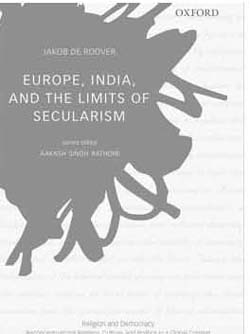There is a kind of negativity which is inherent to ‘toleration’, and so has it been all through with ‘liberal toleration’. Unfortunately, there have been far too few studies on the conceptual moorings of ‘toleration’ which only makes one wonder when commentators and scholars will start respecting the differences rather than merely tolerating them.
Although Roover recognizes the negativity of liberal toleration, he doesn’t tell us anything about the negativity that ‘toleration’ as a concept is impregnated with, but he does introduce us to the negativity that ‘liberal toleration’ as a model of containing conflict and managing diversity is imbued with. Roover suggests that the contemporary liberal model of toleration is not only deficient in obviating the resurgence of religion in the public sphere, but it inherently carries in itself certain forms of intolerance towards the entities which fail to conform to the public/private distinction. Researching the contemporary with what I may call conceptual etymology, Roover tries to explain how and why secularism in the contemporary form remains incapable of obviating the current conflict and managing the presence of religion in the public sphere and how it carries certain forms of intolerance. This question remains the focus of this book.

